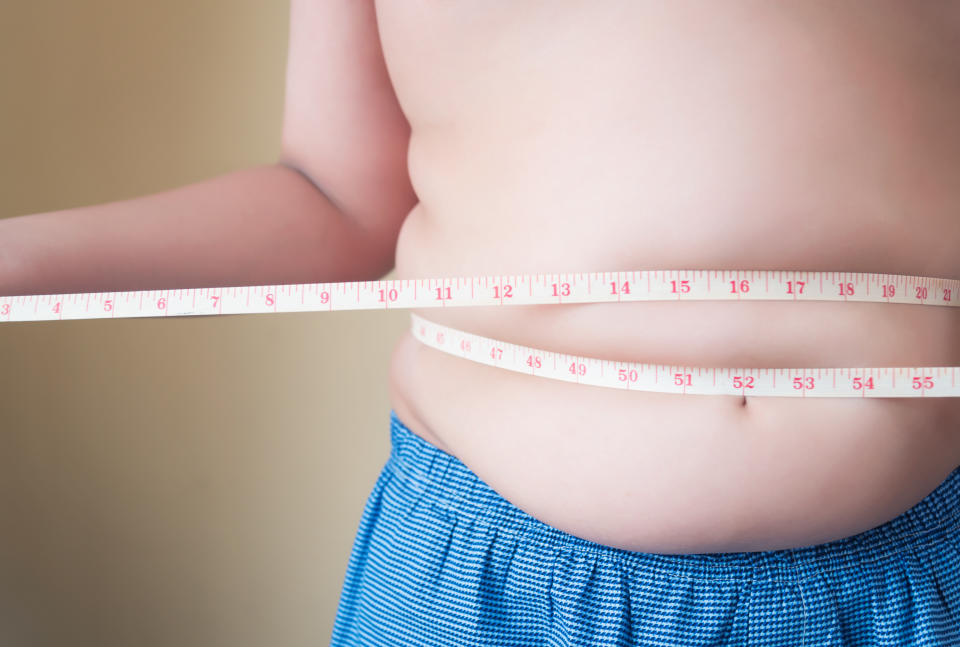Only-children are more likely to obese than those with brothers or sisters

Only-children may be more at risk of obesity than youngsters with brothers and sisters, research suggests.
Scientists from the University of Oklahoma looked at the BMI of 68 five-to-seven year olds.
Of the 27 only-children, 37% were obese. This is compared to 10% of the 41 youngsters with brothers or sisters.
READ MORE: Obesity isn't a choice – nor is it 'down to a lack of willpower'
Childhood obesity is a big problem, with more than one in five youngsters in the UK carrying too much weight when they start school, Government data shows.
This rises to one in three by the time they leave primary school.
And in the US, 13.7 million (18.5%) of two-to-19 year olds are obese, according to the Centers for Disease Control and Prevention.
Childhood obesity has been linked to everything from high cholesterol and blood pressure to bone problems and breathing difficulties.
Heavy youngsters may also endure bullying and face a higher risk of obesity as adults, according to Public Health England.
READ MORE: 'Waist size as important as BMI in defining obesity'
To learn more about obesity’s “triggers”, the Oklahoma scientists asked the children’s mothers to note what they ate over three days - two weekdays and one weekend.
Teachers also reported what the children ate while at school.
Based on this, the youngsters were given a healthy eating score out of four.
Results - published in the Journal of Nutrition Education and Behavior - show the only-children scored worse when it came to food intake, drink choice and exercise.
They were also more likely to eat meals in front of the TV than at the table.
So-called “distracted eating” has been linked to greater calorie intake and a propensity to snack.
This is thought to be due to the eater being distracted by their TV, computer or phone, preventing them “noticing” they are full.
The only-children were also more likely to have obese mothers than those with siblings, the results show. Fathers were not included in the study.
Maternal obesity influenced the children’s BMI and waist circumference “much more strongly” than whether the youngsters had siblings or not, the scientists said.
Having an obese mother was also found to increase the youngsters’ intake of “empty calories”.
READ MORE: Obese people 'drowning in their own fat', study finds
Empty calories are found in foods with little nutritional value but a high amount of fat or sugar.
Obesity among parents has repeatedly being linked to the same condition in their children.
The relatives may be genetically predisposed to carry too much weight or the parents may “pass on” their unhealthy eating habits to their children in the meals they prepare.
The scientists did not speculate on why only-children are more at risk of obesity, however, having their parents’ undivided attention may lead to them being spoilt with fatty treats.
The team are calling on experts to combat childhood obesity by targeting parents.
“Nutrition professionals must consider the influence of family and siblings to provide appropriate and tailored nutrition education for families of young children,” lead author Dr Chelsea Kracht said.
“Efforts to help all children and families establish healthy eating habits and practices must be encouraged.”
The scientists are investigating whether changing “family and household dynamics” could influence a child’s eating habits and obesity risk.

 Yahoo Finance
Yahoo Finance